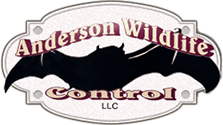In Connecticut, property owners are often troubled by the encroachment of wildlife into their residential or commercial properties. This will generally prompt property owners to seek fast and efficient animal removal and damage repair services to prevent further invasion. It’s important to understand, however, how wildlife protection laws govern animal removal to ensure that owners are remaining within the boundaries of the law.
An Overview of Federal and State Regulations
Property owners are responsible for humanely removing wildlife, and they may be subject to both federal as well as state rules for wildlife removal.
Federal regulations. The primary U.S. government agencies regulating the nuisance wildlife control operator (NWCO) industry are the U.S. Fish and Wildlife Service, the U.S. Environmental Protection Agency, and the Occupational Safety and Health Administration in the Department of Labor (OSHA). While most animals homeowners seek to remove from their premises (squirrels, mice, raccoons, possums, etc.) are not protected species, others may be affected by protection laws. For example, the Migratory Bird Treaty Act protects all migratory birds, including ducks, geese, songbirds, gulls, shorebirds, wading birds, and birds of prey such as owls and hawks. The law protects the birds themselves as well as their feathers, nests, and eggs.
In addition, federal law restricts the use of certain pesticides and rodenticides or prohibits the use of these chemicals for everyone but pest management professionals due to safety concerns. You can find a full list of these substances on the EPA’s website.
State regulations. At the state level, many states have laws on the books that make it illegal to trap or relocate pest animals, largely to prevent the spread of animal vector diseases such as rabies. Depending on your state, there may be rules mandating that the animals are released in the vicinity where they were captured or humanely euthanized if they are sick or injured.
In Connecticut, homeowners are strictly prohibited from trapping and shooting wildlife outside regulated seasons, unless the animal has been actively causing property damage or is an obvious threat to public health and safety. Since 1985, Connecticut has mandated that NWCOs must complete a comprehensive training course and pass a state exam that assesses their knowledge of NWCO regulations, policies and procedures; animal identification, habits, and life histories; recommended wildlife control practices; and humane handling and euthanasia.
The State of Connecticut encourages property owners to use alternatives to trapping and relocating animals, including “eviction” from buildings using harassment or one-way doors, followed by animal proofing and eliminating wild animal access to food and shelter. In any case, there are complex requirements for permits and licenses, so it makes sense to leave the work to a licensed wildlife control organization.
About Anderson Wildlife
Since 1993, Anderson Wildlife Control, LLC has humanely removed and excluded unwanted animals from both residential and commercial properties throughout New Haven County and beyond.
Whether you have a pesky skunk or squirrels that won’t go away, some damage as a result of a raccoon in your chimney, or bats in your attic, we can help. For more information, visit our website or call us at 203-758-0555 or toll-free at 877-966-2287.








